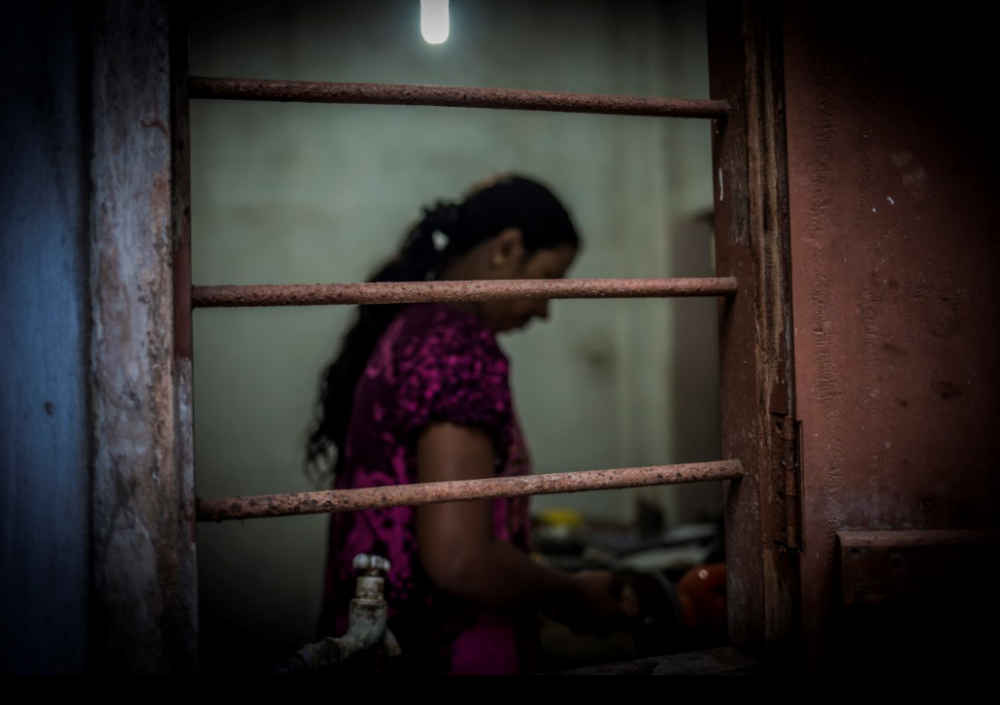Talking about the right to food means talking about violence against women
Date
November 25, 2020
According to the UN Report on the State of Food Security and Nutrition in the world, 60 million more people are hungry today then there were five years ago. Three billion men, women and children cannot afford enough healthy food to eat. Gender inequality is a root cause of the denial of the right to food for so many women and girls. Harmful gendered social norms and inequalities means women are more likely to be denied the right to food: eat last, eat less and eat least.
Gender based violence remains a significant barrier to affirming the right to food for women and girls. If we do not address gender-based violence, then we cannot achieve the right to food. Globally, but in particular, in the agriculture sector and for women living in rural areas, the impact of gender-based violence (GBV) is exacerbated and women’s experiences of violence made invisible.
Statistics show that on average one in three women experience physical or sexual abuse in her lifetime.
Our organizational position paper on gender-based violence for We Effect and Vi Agroforestry define it as:
Any act that is perpetrated against a person’s will and is based on gender norms and unequal power relationships. It includes physical, emotional / psychological, and sexual violence, violence based on Sexual Orientation, Gender Identity or Expression (SOGIE), as well as denial of resources or access to services. Violence includes threats of violence and coercion. GBV includes structural and institutional violence. GBV inflicts harm on women, girls, men, boys, transgender, intersex and non-binary individuals and is a severe violation of several human rights.
This definition highlights how extensive and serious the problem of gender-based violence is at a global level. The denial of the right to food is, in itself, a form of GBV. Harmful social gendered norms at household level means that women often eat least, eat last and eat least nutritious food. Gendered norms about ownership of land, assets and resources mean that women are denied socio-economic and civil and political rights, which is a form of structural violence.
Food insecurity can exacerbate the severity or impact of GBV.
The experience of GBV can also heighten food insecurity by undermining the physical and psychosocial well-being of survivors. Injuries or illness can affect a survivor’s capacity to work, limiting their ability to produce or secure food for themselves and their families. Stigma and exclusion may further reduce survivors’ access to food distributions, food- and agriculture related technical trainings, and other forms of support.
As the COVID-19 pandemic unfolds its posing new challenges to rural women with regards to their roles in household food security, as agricultural producers, women farmers, informal sector workers and entrepreneurs. Global studies show that rural women are disproportionally affected by health and economic crises including, but not limited to food security and nutrition, time poverty, access to health facilities, services and economic opportunities, and gender-based violence (GBV).
FAO projects that another 130 million people can be undernourished due to the corona pandemic. This will of course also particularly impact on women and likely increase violence against women.
Women are agents of change and key players in global food system. We need to transform harmful gender norms that perpetuate gender-based violence to ensure that women can fully affirm their right to food and ensure recognition for their significant contribution to the agriculture sector and the production of food.
It is time to speak up in solidarity with all women everywhere to tackle gender based violence.
It is also time to make space to listen to women from all over the globe to understand how experiences of violence intersect with multiple identities. We must take a seat, listen and plan action during #16DaysofActivism and beyond…..tackling gender based violence is a long term commitment.
Sian Maseko, Camilla Lundberg Ney, Mariam Ikermawi, Faith Wayua, Marjorie Chola Chonya, Neda Calovska, Damaris Ruiz and Celina Butali.